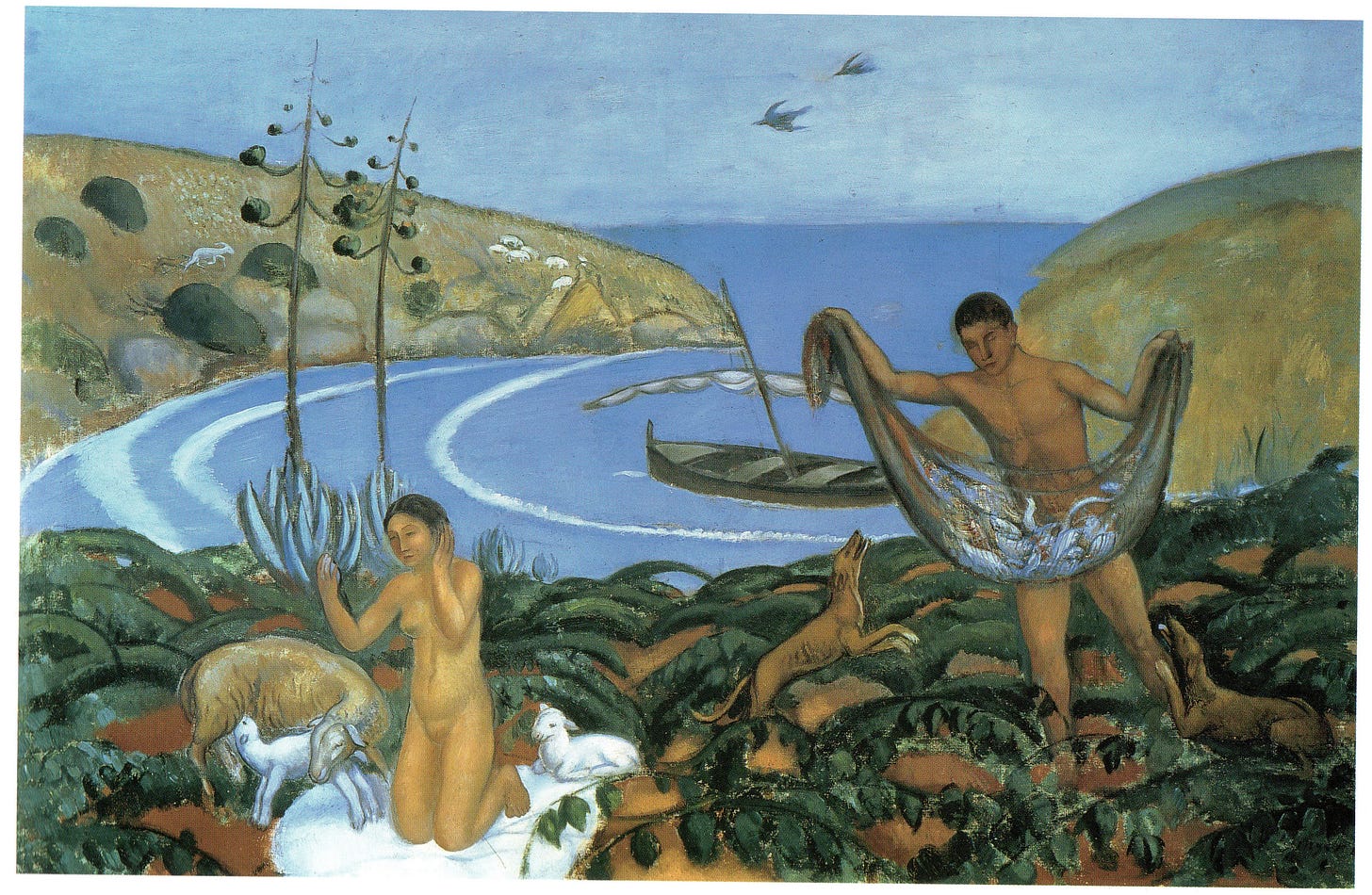Aesthetics as the Politics of Vitality
Beauty is a vital political goal, not a luxury reserved for prosperous times, but rather the precondition for creating prosperity worth having
"Beauty is not the divine in a cloak of physical reality; no, it is physical reality in a cloak that is divine."
Rudolf Steiner
Recently I’ve found myself thinking a lot about the role of aesthetics and beauty in politics. And I have come to the conclusion that aesthetics has always been a central political matter.
Aesthetics in political contexts is often regarded as a frivolous indulgence. A political movement that not only has good aesthetics, but that talks and cares about beauty is usually criticized as superficial.
We live in an era where beauty as a political concept has become relegated to the margins, dismissed as superfluous decoration, when not directly attacked. However, the negation of beauty is nothing less than a civilizational crisis.
Here when I speak of aesthetic beauty, I do not mean the continuous slop of seemingly beautiful images and videos that bombard us in social media. That is just inert beauty that we forget the moment we scroll past them.
The vitality of powerful aesthetics emerges from the harmonious integration of form with purpose. Beauty speaks to something deep within ourselves, a fundamental need for meaning and a spiritual connection to the eternal. When we encounter true beauty we witness life expressing its fullest potential, as God’s gift.
Beauty is indeed the most common connection that humans can have with the eternal, and the fear of losing such connection, is what makes us inherently value and to be attracted to powerful aesthetics.
I believe that post-modern artists are right when they say that defying the rules of aesthetic beauty always provokes a reaction in the observer. However, ugliness rarely provokes inspiration for a higher calling. That is something only beauty can do.
More often the natural response when faced with the grotesque is repulsion, and even the immediate desire to expunge it from Earth or put as much distance from it as possible.
True aesthetic beauty must always be a call for greatness. A beautiful body reflects inner vitality, or at least the potential for it. When we walk down the streets of a beautiful city, we sense that—if not in the present, then at some point in history—that city was inhabited by a people with an expansive spirit, who could give form to their highest aspirations in their environment. And thus beauty generates in us the desire to imitate and embody such a state of mind in our own pursuit of greatness.
With this perspective in mind, we can understand that aesthetics, far from being a mere matter of taste, is a fundamental way of engaging with existence. Aesthetics is a lens through which we assess the value not just of physical forms, but of entire ways of life.
This means that beauty is not an ornament to human life, it is not only a pleasant enjoyment, but life's highest expression, and thus the pursuit of beauty is a political goal in its own right.
The lesson here is that beauty is a vital political goal, not a luxury reserved for prosperous times, but rather the precondition for creating prosperity worth having.
Today the pursuit of beauty has become an act of political defiance. We inhabit a world increasingly characterized by what might be called aesthetic poverty.
Ugly functionalist buildings, language stripped of flavour, degraded public spaces, unhealthy and unharmonious bodies. All together generates an environment that starves the soul.
This systematic uglification is not an accident. It reflects deeper currents of technocratic, managerial and utilitarian thinking that reduces human experience to its lowest end. It is a way to separate us from the eternal.
Schools of thought obsessed with equality have always waged a war against beauty, because beauty is inherently unequal. And that is what makes it special. Some are born with natural beauty, and apart from a few exceptions, to maintain it and to cultivate it demands great efforts.
That's why the proponents of the Great Flattening have found in imposing the cult of grotesque aesthetics the only way to suppress the natural human attraction towards beauty.
Against this scenario, creating and defending beauty becomes an inherently political decision. It represents a refusal to accept that human life should be ruled by the tyranny of the mediocrity of aesthetics of subsistence.
Even if today the movement has been largely obscured, early 20th-century Catalan Noucentisme understood the connection between aesthetics and politics with remarkable clarity.
The whole idea of Catalan Noucentisme was aimed at integrating reason and life through classical values and the concept of beauty. For its philosopher-in-chief, Eugeni d'Ors, it was clear that the cultivation of beauty was inseparable from the assertion of Catalan greatness.
The Noucentists understood that a people's capacity to take the reins of its own destiny must be demonstrated through their ability to create lasting beauty.
All of this comes down to the fundamental question: if your politics cannot create beauty, then why should we follow you?
However, not all of those who today claim to oppose the managed decay of the West truly understand the political importance of aesthetics, even if they do realize the importance of defending beauty.
Without an aesthetic dimension, human communities lose their capacity to inspire loyalty, to transmit values across generations, and to justify the sacrifices that meaningful collective projects require.
In the present moment, to reclaim beauty is not to frivolously escape from political reality, but to reclaim the foundation of politics itself.


